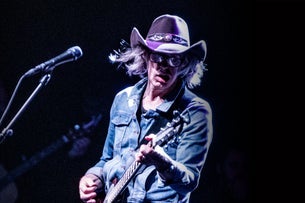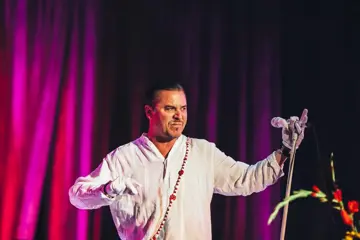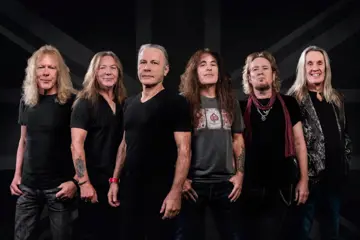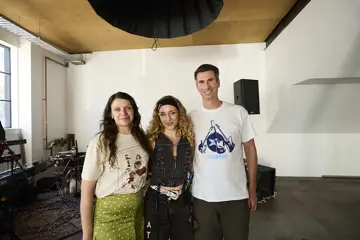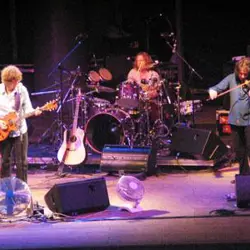 The Waterboys
The WaterboysAs the founder and only permanent member of legendary outfit The Waterboys, Mike Scott has been on a 30-year musical odyssey spanning radical shifts in style from post-punk to traditional Celtic folk and rock'n'roll. Alongside recurring collaborator Steve Wickham, often credited as one of the world's greatest rock fiddle players, Scott is delighted to bring “the best ever Waterboys line-up” to our shores.
“Well it's not been deliberate, honestly,” he says casually of their absence to date. “Every year I say to my agent, 'Are we goin' to Australia this year?' And he says, 'I'm talkin' to the Sydney Festival and I'm talkin' to the promoters.' And most years the talk doesn't crystallise into an actual tour but this year somehow by some alchemy, by some wonderful alchemy, it did.”
With a changing cast said to have numbered over 60 musicians since The Waterboys' inception in '80s Edinburgh, including 15 drummers for the renowned Fisherman's Blues sessions alone, Scott's literate romanticism and enduring passion have been a constant. Fulfilling his long-held ambition to create an album reframing the poetry of WB Yeats in a rock context with the release of An Appointment With Mr Yeats in 2011, The Waterboys' debut visit will be more than a nostalgia trip.
“We would do two sets [on the last European tour], and the first set would be vintage Waterboys and the second set would be Mr Yeats music and it went really great, really great,” Scott enthuses. Though fresh material from a heritage act can often be a tough sell, An Appointment With Mr Yeats isn't technically new considering it took Scott two decades to write.
Don't miss a beat with our FREE daily newsletter
“Well, there were two reasons really,” says the 54-year-old of the lengthy development period of The Waterboys' tenth album. “I was committed to only going ahead with it as a show and ultimately an album if I had a collection of Yeats adaptations that were great; it had to be absolutely great because Yeats' lyrics were so great. And I felt every track had to be worthy of being on a best-of album – it had to be that good. So I waited until I had what I thought was such a collection and that took me 20 years. The other reason for waiting was that Yeats was in copyright until the end of 2009, and I made some changes to the poems because the process of adaptation sometimes demands little changes. I'd never change Yeats' intention or distort his meaning at all, but sometimes I would change a word or I would flip two lines or maybe I would leave out something or maybe I would add something from a different poem into a longer poem to make a single song – use the elements of two poems to make one song. And I wouldn't have been able to make those changes if he'd still been in copyright because his estate would have insisted that I don't change anything. Once the clock ticked onto the first of January 2010, I was free to go public with it in any form I wanted.”
Having never been an outfit to bow to trends – as may be said of former peers U2 – Scott shares his insights on career longevity versus creative integrity. “I have never broken my connection with the music,” he says. “I've never done what other people have wanted me to do at the expense of the music. I've never kept repeating some things so that I would be more successful if the music was suggesting I do something else. I've always done what the music told me to do, so I've always kept the intimacy of my connection with the music and for me that's the key to still being hungry and fresh.”
QLD:
Saturday 19 January, The Tivoli
NSW:
Wednesday 23 January, Sydney Festival, State Theatre; Friday 25, Canberra Theatre Centre
VIC:
Wednesday 30 January, Hamer Hall, Arts Centre
WA:
Saturday 2 February, Perth Concert Hall

